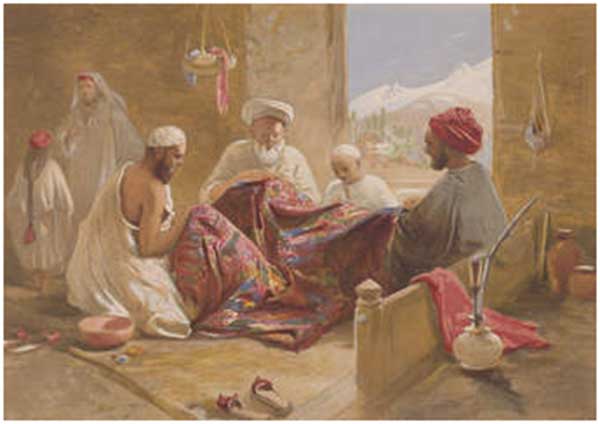Long before Chicago events, Kashmiri shawl weavers stood for rights
 Srinagar: As the world marks International Workers’ Day, commemorating the historic labor protests of 1886 at Haymarket Square in Chicago, attention is drawn to a lesser-known but significant chapter in labor history: the Shawl Baaf Tehreek, or Shawl Weavers’ Uprising, of April 29, 1865, which stands as the world’s first trade union movement.
Srinagar: As the world marks International Workers’ Day, commemorating the historic labor protests of 1886 at Haymarket Square in Chicago, attention is drawn to a lesser-known but significant chapter in labor history: the Shawl Baaf Tehreek, or Shawl Weavers’ Uprising, of April 29, 1865, which stands as the world’s first trade union movement.
According to Kashmir Media Service, long before the events in Chicago or even preceding the Russian or Chinese communist revolutions, Kashmir’s shawl industry witnessed a landmark moment in workers’ rights activism. Almost 21 years prior to the Haymarket incident, the streets of Srinagar witnessed the organized labor and trade union movement of weavers and workers associated with shawl weaving.
The protest, fueled by grievances against oppressive taxation and exploitative working conditions imposed by Hindu Dogra rulers, saw unarmed weavers taking to the streets. Historians document that on April 29, 1865, 28 weavers lost their lives, with scores injured as they marched against unjust policies.
“The shawl weavers of Srinagar were compelled by turbulent working conditions, unfair wages, excessive taxation, and a ban on leaving the Kashmir valley,” explains Rehka Chowdary, a teacher at the University of Jammu.
Leaders of the movement, including Rasool Sheikh, Ali Pal, Abdul Qudus, and Sona Shah, were met with arrests, imprisonment, and even death in jails, yet their contributions to labor rights remain largely unacknowledged.
Despite its significance in the annals of labor history, the Shawl Baaf Tehreek has not received due recognition from global labor movements. However, in Kashmir, particularly among Pashmina businesses, April 29 is observed as Labour Day, commemorating the sacrifice of those brave weavers.
The origins of the Kashmiri shawl industry date back over 700 years, with the art of weaving introduced in the mid-14th century. Over centuries, Kashmir shawls gained international fame, with figures like King Akbar and Empress Josephine contributing to its prominence.
Today, as the world reflects on the struggles and achievements of labor movements, the story of Kashmiri shawl weavers stands as a testament to the enduring fight for workers’ rights and dignity.








